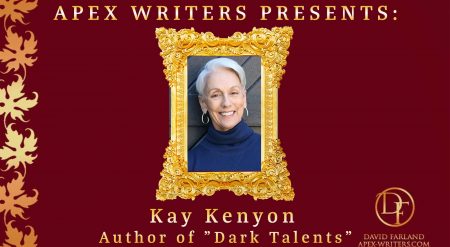I’ve often said that there are ten thousand right ways to write a story. Unfortunately, there are a million wrong ways to do so. That’s why I’ve found when editing stories for anthologies or judging contests, about 90% of them don’t make the first cut. Here are some easy ways to avoid getting rejected.
1. Use proper grammar
If I see that you have a large number of typos, poor grammar, or incorrect punctuation on the first page of a manuscript, I will reject the story. (I lump all such errors into the category of “boogers.” This also includes things like coffee or cat pee stains on manuscripts.) I may forgive one mistake on a first page, or even two, but not three. Small errors suggest sloppy work throughout the tale.
2. Beware of starting your story with profanity, sex, or extreme violence
As an editor and writer, I want my books to appear in national markets. So I want librarians and school teachers to pick up the books and recommend them wholeheartedly. With rare exceptions, books that sell well tend to have something of a PG rating.
Recently I received a story that had a picture of the author attached. She was young. She was gorgeous. She had only three marijuana leaves covering her body. Don’t send me such pictures.
3. Do not write query letters that insult the editor
Letters that suggest that “My property is so much better than anything else you fools have published” will guarantee a rejection.
4. Don’t start off by telling your editor that you are planning a book/movie/video game empire
Some editors will reject a work specifically because it looks “too much like a movie.” I’ve received submissions that contain photos of every star that the author plans to use in his first movie, along with a breakdown of the 400-million dollar budget. I often get such packages with release forms attached, so that I have to promise not to steal the author’s ideas before I open it. I understand that the author is excited, but it really does look silly.
5. In your query letters, do not offer bribes to editors
I once had an editor friend who got a letter with a penny, an aspirin, and a condom in it. The young writer said, “There, I’ve offered you sex, drugs, and money—now will you accept my proposal?” The editor was not amused. On one or two occasions, I have heard of editors who actually were offered bribes, but the editors didn’t take them. However, that makes me wonder. If an editor did take a bribe, would he ever tell anyone? And how much do you need to offer an editor? They get paid less than church mice. Hmmm . . . maybe that explains some of those poor books I’ve seen. . .
6. Never put a cover illustration in with your manuscript
If you’re writing a fantasy, it is all right to put in a map, but make it a good one.
Now, you might say, “But what if I’m an illustrator too?” The truth is, even if you’re a professional illustrator, you don’t want to put on a cover. The book’s prose needs to stand on its own. When it is time to get artwork done, you can submit your artwork separately, but recognize that the art director for the publishing house will normally be very leery of using your art. I have seen only a couple of illustrator/writers who have ever pulled this off.
7. Format your manuscript properly
A lot of authors don’t bother to format their manuscripts properly. Years ago, I used to think: “Okay, so these writers are novices. They don’t know the rules. I’ll give them the benefit of the doubt.” But over time I learned that people who hadn’t learned to write in manuscript format usually had fatal flaws in their story. They hadn’t practiced the craft enough to become publishable. So when I see a manuscript that isn’t formatted properly, it raises a red flag.
8. Never start a book with a list
Whether that’s a list of twenty or thirty characters, or a list of every place in the book, or a dictionary of special terms. Your tale should instruct the reader well enough so that it can be enjoyed without those things.
9. Never try to sell a story based upon copyrighted material
For example, publishers must reject song lyrics every time, so don’t insert lyrics to recent songs. I’ve seen some great fan fiction. For example, in Writers of The Future a few years ago, I got a touching story about Gomer Pyle coming back from the war in Vietnam, but it can never be published in a major magazine. The same is true if you write a Star Trek, Star Wars, or Twilight story. Writing such stories is a waste of your time. Write your own fiction.
10. Don’t waste an editor’s time
Don’t send “true” stories to fiction markets. Don’t send your doctor’s thesis, or private letters telling the editor about your rough childhood. If my guidelines say that I want science fiction, don’t send me a mainstream story. If I tell you that my length limit is 7,000 words, don’t send me your novel. With Writers of the Future, we can’t have the author’s name on the manuscript. If you put them on, I must reject the manuscript, even if I love it.
Happy Writing!
David Farland
Kay Kenyon is an American science fiction and fantasy writer currently living in Wenatchee, Washington. She wrote “The Entire and the Rose” and “Dark Talents” book series.
David Farland will be hosting a Master Workshop for Fyrecon!
Making it Big as the Modern Writer: A Blueprint for Success
8 Hour Master Workshop for $179
(includes Whole Conference general admission to Fyrecon)
Class is limited to 50 students
January 15, 2022 at Fyrelite Winter 2022










